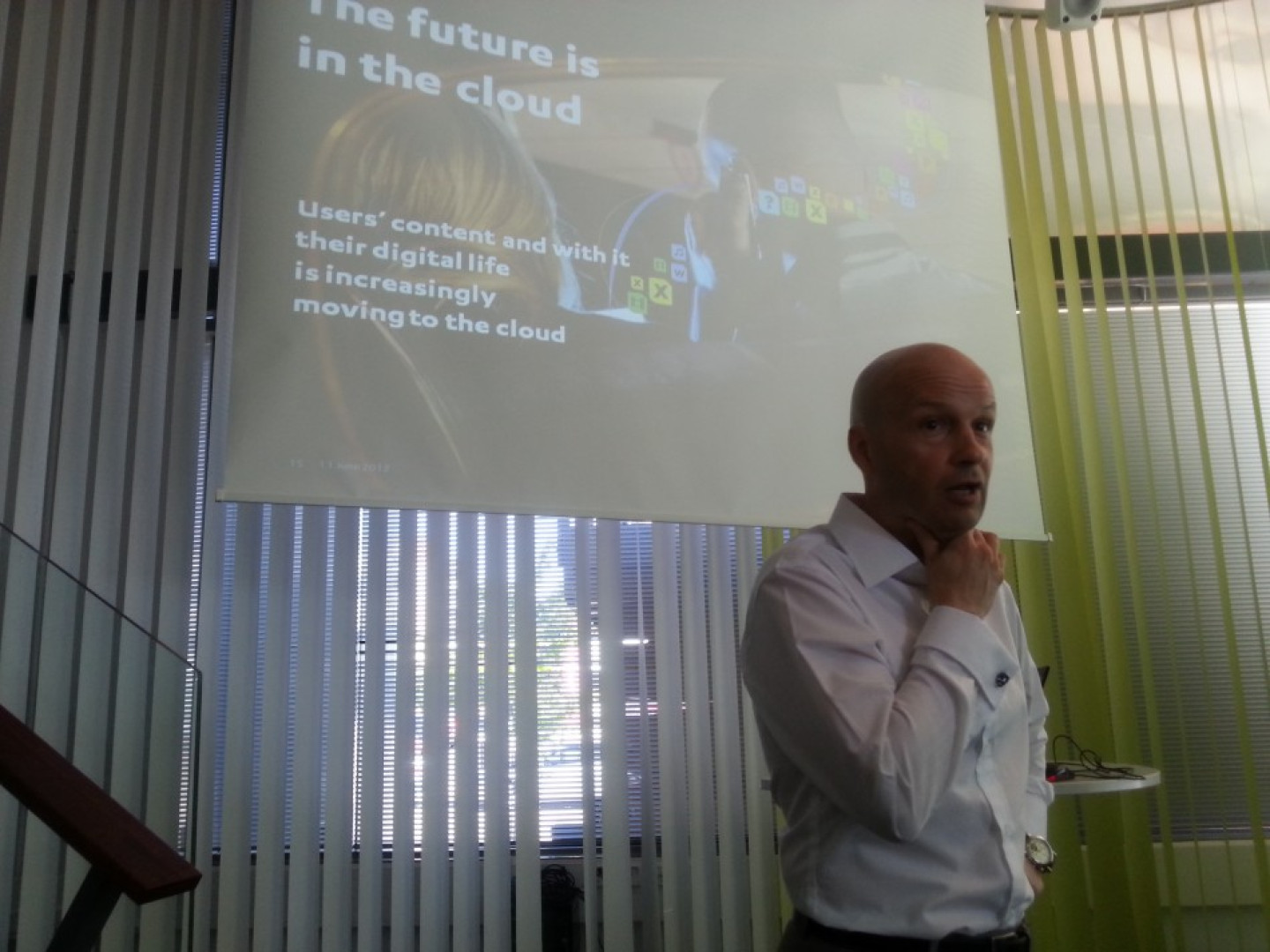F-Secure CEO Christian Fredrikson: We are the Good Guys in the Cyberwar
F-Secure boss tells IBTimes UK that fight against cyber-crime is never ending
The CEO of online security firm F-Secure, Christian Fredrikson says that he and his colleagues are the "good guys" with one aim: "to protect the internet."

IBTimes UK is visiting the F-Secure headquarters in Helsinki, Finland where Fredrikson spoke about how the company's home country is the perfect location for a security company to operate. "We protect against any malware, any virus because we are from Finland, a neutral country."
Fredrikson, who has only been CEO since January, went on to ridicule his own country's potential cyber threat: "It would be a laughing stock if the Finnish government went to cyberwar."
However the same cannot be said for most governments around the globe and the emergence of sophisticated, state-sponsored cyber-espionage tools such as Flame and previously Stuxnet prove this.
A recent New York Times article claims that Stuxnet was the result of a collaboration between the US and Israeli governments targetting Iran's nuclear program - though both deny responsibility.
Analysis of Flame by Kaspersky Lab indicates that it was also a state-sponsored though who was behind the latrest threat is still unknown. However analysis last week revealed a collaboration between the creators of Stuxnet and Flame at some point.
These which were specifically built not to be tracked and this is how they managed to operate undetected for so many years.
With the cyber warfare increasing dramatically in recent times, it is hard to estimate how much further it will grow and even Fredrikson and F-Secure don't know: "Your guess is as good as mine how far this will go."
When F-Secure started out life 24 years ago malware was in its infancy and they tracked them using their human security analysts.
However as the volume of malware has grown exponentially, it has proven impossible to track the millions of pieces of malware individually, so automation has become more and more important.
Fredrikson said that F-Secure's labs in Helsinki monitor between 20,000 and 30,000 pieces of malware on a typical day, but had been known to monitor up to 100,000 in a single day.
"Automation is the way things have gone for us, but so have the cyber criminals. It is a game all the time."
When asked if it was a problem that F-Secure's automated systems, and those of other security companies, had failed to spot Flame, and Stuxnet before it, for as long as three years, he said: "The resources on that side [cyber espionage] are huge. It is very tough."
He added that Flame was "very well done" and unlike most malware used by cyber criminals contained no bugs, meaning it was allowed to go unnoticed for so long.
F-Secure's primary business see them providing security - and more recently online backup and sharing - to more than 200 broadband and mobile phone operators around the globe, began life protecting specific devices,
Despite, or maybe becasue of, the grwoing cyber threat globally, Fredrikson said the current environment provides "a huge opportunity" for security companies like F-Secure.
With some of the most talented poeple being lured away by criminal gangs as well as governments, the CEO knows he needs to constantly be looking to stay ahead by recruiting the right people.
"We are hunting the talent all the time and we need to be competitive and the challenge is that salaries are going up," which is good for those in the indursty.
Fredrikson sees his job as one of constant vigilance where a new piece of malware appears just as one has been erased: "We see that we have busy days ahead. Being the good guys is going to make us run a lot."
Check out the IBTimes UK Cyber Warfare section.
© Copyright IBTimes 2024. All rights reserved.






